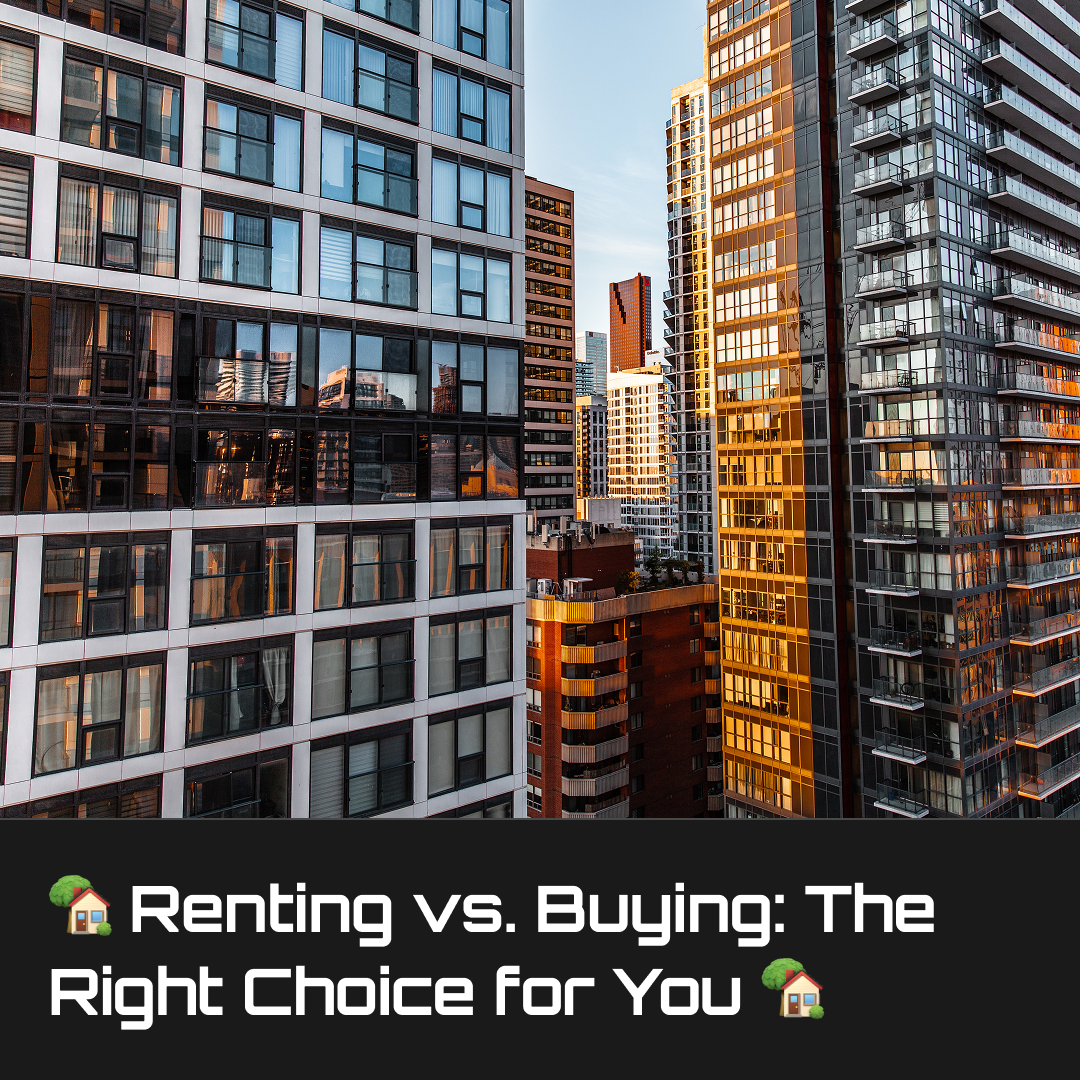Renting vs. Buying: Which Option is Right for You?

The decision to rent or buy a home is one of the most important financial choices you’ll ever make. Whether you’re just starting out in your career, looking to settle down, or thinking about long-term investments, understanding the key differences between renting and buying can help you make a choice that best fits your lifestyle and financial goals.
Let’s break it down:
Renting: Flexibility and Low Commitment
Renting a property offers flexibility, and for many people, this is the main advantage. Here’s why renting might be the right choice for you:
- Lower Upfront Costs: Renting typically requires a security deposit and possibly the first month's rent, but it doesn’t demand the large down payment that buying a home does. This allows you to invest your savings elsewhere, whether that’s in a retirement fund, travel, or other opportunities.
- Flexibility to Move: Renting offers the freedom to move to different neighborhoods or cities with ease. This is ideal for people in transitional stages of life—whether you’re relocating for a new job, exploring different parts of the country, or not yet ready to commit to a long-term residence.
Maintenance-Free Living: When you rent, your landlord is typically responsible for maintenance and repairs. If something breaks down, all you need to do is call them. This makes renting a low-maintenance, hassle-free option for those who don’t want the responsibility of home upkeep
Buying: Stability and Investment Potential
Buying a home is a long-term commitment, but it comes with several unique benefits that can make it a smart choice for those ready for it:
- Building Equity: With each mortgage payment, you’re slowly building equity in your home—an investment that can grow over time. While your rent payments go to a landlord, homeownership helps you build wealth. Additionally, over time, your home’s value may increase, giving you a significant return on investment when you sell.
- Predictable Monthly Payments: When you buy a home with a fixed-rate mortgage, your monthly payments are predictable and remain the same throughout the term of the loan, even if rents in your area rise. This can provide a sense of financial stability, especially in fluctuating rental markets.
- Full Control Over Your Property: As a homeowner, you have the freedom to make changes to your home—whether that’s renovating, adding new features, or upgrading the space. This gives you control over your living environment in a way renting simply can’t.
- Tax Benefits: Homeownership can come with some tax advantages, such as deductions for mortgage interest and property taxes, which can help you save money over time.
Which Option Is Right for You?
The choice between renting and buying depends largely on your personal situation, goals, and financial readiness. Here are some questions to ask yourself when deciding:
- How long do you plan to stay in one place? If you’re planning to move in the next few years, renting might be the better option. But if you want long-term stability and plan to settle down, buying could make more sense.
- What is your financial situation? While renting may be more affordable in the short term, buying can be a better investment in the long run if you’re financially stable enough to handle a down payment, mortgage payments, and home maintenance costs.
- Do you want flexibility or stability? Renting gives you more flexibility and less commitment, while buying offers long-term stability and the chance to build equity.
Ultimately, the right choice will depend on your unique circumstances and future goals. Whether you choose to rent or buy, the key is to make an informed decision that fits your current needs and aligns with your future aspirations.
Need help deciding? We can help you explore the best options based on your goals and financial situation. Contact us today to get started!